John Cassidy's Blog, page 83
December 16, 2012
Mayor Bloomberg Telling It As It Is on Gun Control
Visit NBCNews.com for breaking news, world news, and news about the economy
A little confession: I’ve never been a big fan of Mayor Bloomberg. Perhaps my views are out of date, but I don’t like billionaires buying public offices. I don’t like the way he continues to control a big media business while in City Hall. (Sure, he gave up the C.E.O.’s job, but everybody at Bloomberg L.P. knows that, ultimately, he still makes the big strategic decisions.) I don’t like the pretense that he’s just a businessman with no ideology. (The cult of business efficiency is innately ideological.) And I don’t like the way he’s used his generous donations to the arts to seduce the city’s liberal and artistic elite.
But when it comes to gun control, and particularly his response to the Newtown massacre, I’m here to say, Good on you, Mr. Mayor! More than anybody else on the political scene, Bloomberg has been saying what is crying out to be said: The U.S. gun laws, bought and paid for by the N.R.A., are a disgrace to the nation, an affront to the values it claims to represent, and a travesty of the Democratic process.
...read moreDecember 14, 2012
America’s Shame: Words and Tears Aren’t Enough

Having flown into Manchester from J.F.K. on Friday morning, I was driving through my home town of Leeds listening to the radio. “We’re getting reports of another mass shooting at a school in the United States,” the announcer on BBC Radio 4 said, “this one at an elementary school in Connecticut.” By the time I reached my destination, a holiday charity event at Leeds Irish Center, the big television screen above the bar, which is usually dedicated to sports, was showing live pictures and footage from Newtown: buildings and vehicles cordoned off with yellow plastic tape, burly police officers sporting submachine guns, teary parents leading away some of the young survivors.
December 12, 2012
Why Is Big Business Supporting Obama?
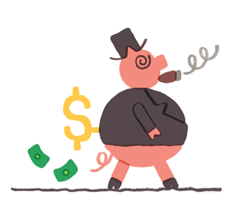
I can’t help it. When I see Fortune 500 titans like Rex Tillerson, the chief executive of ExxonMobil, calling for higher taxes on the rich, I suspect there’s something fishy happening. Tillerson, a conservative Texan who earned about thirty-five million dollars last year and is a longtime skeptic of global warming, is one of the dozens of prominent businessmen who have signed an open letter calling on “Congress to agree on more revenue—whether by increasing rates, eliminating deductions, or some combination thereof.”
...read moreDecember 11, 2012
Is the United States Moving to the Left?

Over the weekend, at a Christmas party in Brooklyn, I ran into an old acquaintance, a veteran editor and publisher of serious, left-leaning books. For much of the time I’ve known him, he’s been busy bemoaning the state of American politics—the entire works of the Bush Administration and the G.O.P., obviously, but also the prevarications and retreats of Obama’s first term: the capitulation to Wall Street, the drone attacks, the failure to close Gitmo, and so on. On this occasion, I fully expected to hear another litany of complaints, but it didn’t happen. In fact, my old cobber was in a good mood. “The country’s moving to the left,” he announced with a smile.
December 7, 2012
Unemployment Rate Falls to 7.7 Per Cent: But Where Are All the Other Workers?
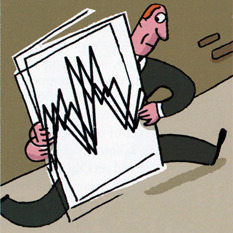
What a difference a month makes. Five weeks ago, the entire country was focussed on the October jobs report to see, four days before the election, if there would be a nasty surprise for President Obama. There wasn’t. The payroll figure came in at 171,000, and the unemployment rate stayed under eight per cent. Mitt Romney was left to face the voters unaided by the Labor Department.
The November jobs report, which once again was broadly positive, was greeted with much less fanfare when it was released this morning. By eight-forty-five, just fifteen minutes after the numbers came out, the talking heads on CNBC had moved onto the troubles of Reed Hastings, the Netflix C.E.O. A payroll number of 146,000, broadly in line with what’s been happening in the past few months, isn’t a big talking point—neither, evidently, is the fact that the unemployment rate has fallen to 7.7 per cent, its lowest point since December, 2008, when the financial crisis was at its height. But it’s still significant—and somewhat surprising—news.
...read moreGeorge Osborne’s Game: From Austerity to Cruelty
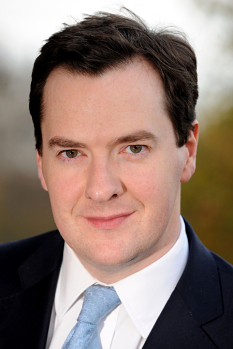
Over at our Daily Comment blog, I’ve put up a longer post on the latest failure of austerity economics: the admission by George Osborne, the British Chancellor of the Exchequer, that, after two and half years of furious budget-cutting, he’s still failing to meet his own fiscal targets.
One thing I didn’t mention in that piece is that Osborne isn’t merely reaffirming his commitment to the deflationary economics of the early nineteen-thirties. He’s coupling it with an embrace of Reaganite trickle-down economics of the nineteen-eighties and the even harsher Benthamite economics of the eighteen-thirties. Earlier this year, he cut the top tax rate from fifty per cent to forty-five per cent, claiming that Britain’s highest earners needed incentivizing. Now, with roughly one in twelve working-age Britons out of a job, he’s cutting the value of unemployment benefits—a move that harkens back to the infamous Poor Law of 1834, which was designed to stigmatize paupers and vagrants.
December 5, 2012
A Worthwhile Tax and Spending Proposal
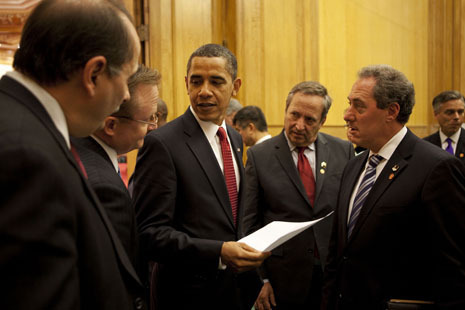
With the fiscal-cliff standoff between President Obama and Speaker Boehner continuing—the pair haven’t spoken in a week—two questions arise: How will the stalemate be broken? And what should an agreement look like?
The most likely answer to the first question is still some sort of last-minute deal that raises tax rates, but not all the way back to the levels of the Clinton era, cuts spending a bit, and defers the really tough issue of how to prevent Medicare from swallowing the federal budget over the next thirty years. As I pointed out a few days ago, before the latest round of mutual recriminations, the Republicans have hardly any leverage: eventually, they will have to cave. With the White House also keen to avoid going into the New Year without an agreement, at which point the Bush tax cuts would expire and the automatic spending cuts would kick in, a compromise is the logical outcome.
...read moreDecember 4, 2012
Newspapers as Luxury Goods: Murdoch and Sulzberger Have More in Common Than It Appears
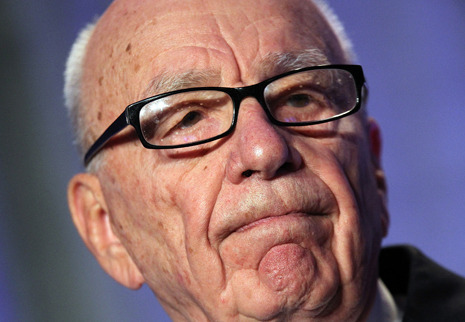
In August of 2007, when Rupert Murdoch’s News Corp. agreed to pay five billion dollars for the Wall Street Journal—thank you very much Father Christmas, said the Bancroft family, rushing off to the bank lest News’ long-suffering stockholders organize an insurrection—there was much talk of an old-fashioned newspaper war breaking out between the Journal and the Times. Conservative Murdoch battles liberal Sulzberger for control of Gotham: in the days when tablets were still something you took for a hangover or a heart condition, the story was irresistible. (My colleague Ken Auletta has a piece about Murdoch’s daughter Elisabeth in this week’s New Yorker.)
November 30, 2012
The Fiscal Cliff: Now for the Middle and End Games
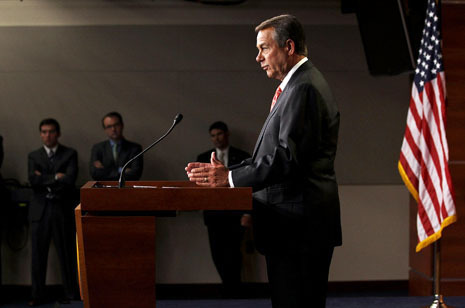
To those of you, such as my colleague Andy Borowitz, who would rather read a calculus textbook or visit the proctologist than read another piece about the fiscal cliff, you have my sympathies. But spare a thought for us—the poor, benighted journos who have to cover this stuff on a daily basis for the next month or so. I guess you could call it our penance for all those months spent making fun of Mitt Romney, who, just by happenstance, visited the White House on Thursday as hopes of an early fiscal deal, stoked by President Obama earlier this week, were evaporating.
...read moreNovember 29, 2012
The Prime Minister and the Press Barons: Craven to the Last
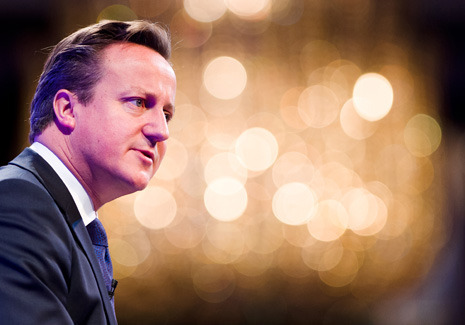
After a year-long public inquiry involving hundreds of witnesses, Lord Leveson, a well-respected high-court judge in the United Kingdom who’d been tapped by Prime Minister David Cameron to investigate the British newspaper industry in the wake of the phone-hacking scandal, today released a lengthy report and demanded stricter regulation of the country’s press. After all the revelations about reporters at Rupert Murdoch’s tabloid newspapers, and quite possibly some others, hacking voice-mail boxes, bribing public officials, and otherwise engaging in journalistic “dark arts”—Leveson’s phrase—this was hardly surprising. As the judge noted, his inquiry illuminated “press behavior that, at times, can only be described as outrageous.” The previous system of self-regulation, under which Fleet Street’s finest largely oversaw themselves, had been reduced to a bad joke.
...read moreJohn Cassidy's Blog
- John Cassidy's profile
- 56 followers



